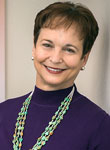Learning the “Old-Fashioned Way”: Study Says Taking Notes by Hand Better for Recall
 These days, it’s hard to find a law student who doesn’t come to class with a laptop or tablet of some type. Even if the student avoids the temptation to access the Internet during class and simply uses his laptop to take notes, it’s likely his recall of concepts will be not as good as a student who takes her notes by hand.
These days, it’s hard to find a law student who doesn’t come to class with a laptop or tablet of some type. Even if the student avoids the temptation to access the Internet during class and simply uses his laptop to take notes, it’s likely his recall of concepts will be not as good as a student who takes her notes by hand.
According to a post in The Chronicle of Higher Education, researchers have found that taking class notes by hand helps students better recall concepts in the lecture. The researchers asked students to take notes using “their normal classroom note-taking strategy.” Some used laptops (disconnected from the Internet) and others used pen and paper and wrote longhand. After 30 minutes, students were tested on the lecture. Researchers discovered that while the laptop note-takers took more than twice the amount of notes as the longhand note-takers, the laptop note-takers “scored significantly lower in the conceptual part of the test.” Both groups scored the same on factual recall.

